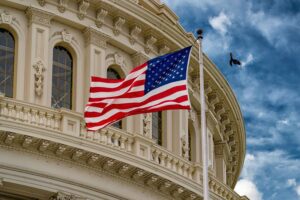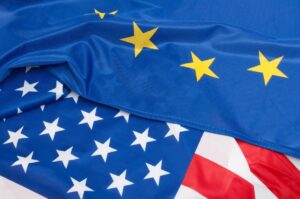
In the winter of 2025, Vertex Pharmaceuticals presented the results of the first large-scale study (phase I/II) of zimislecel (formerly VX-880), a stem cell-based drug. This experimental treatment aims to restore the cells of the islets of Langerhans in the liver of patients.
The trial involved 14 patients with severe type 1 diabetes and hypoglycemia detection disorders. All participants received a single infusion of zimislecel into the hepatic vein and initial immunosuppressive therapy without glucocorticoids. According to data from one year, 10 out of 12 completely stopped insulin injections, becoming insulin-independent, while the remaining two patients reduced their insulin dose by 92% on average. All participants normalized their HbA1c levels (<7%) and spent more than 70% of their time in the glycemic range of 70-180 mg/dL.
Side effects:
• Neutropenia was observed in 3 patients;
• Two fatalities were recorded: one from cryptococcal meningitis (off-protocol), the other from severe cognitive pathology unrelated to treatment.
The discontinuation of insulin therapy in 83% of participants is a very significant achievement, indicating the possibility of restoring endogenous insulin secretion. The American Diabetes Association (ADA) called the data “unprecedented” after three stages of presentation at the ADA-2025 conference in Chicago.
However, it should be noted that the study was small (12–14 participants) and short (12 months); large-scale control experience is needed. Data on long-term efficacy, safety, and commercial affordability are not yet known.
Phase III has now begun, with approximately 50 patients expected to participate. The next results are expected at the end of the year, after which the FDA application process will begin.
The drug is positioned as a breakthrough “functional remission” for a group of patients with severe diabetes and a tendency to hypoglycemic events. If its effectiveness is fully confirmed, it will be a global revolution in the treatment of type 1 diabetes.

The US Treasury Department has again granted a postponement until July 29 on the application of sanctions against Serbia’s NIS, according to a statement from the company. Energy Minister Dubravka Jedovic-Handanovic, quoted by Serbian media, said that “sanctions against NIS have been officially postponed, as confirmed in writing last night.”
Serbia has previously received several postponements of sanctions against NIS from the US, most recently until June 27.
As reported, on January 10, the US imposed sanctions against two Russian oil companies, Gazprom Neft and Surgutneftegaz, as well as their subsidiaries. The SDN List also includes Gazprom Neft’s Serbian subsidiary, NIS. The US then postponed the imposition of sanctions against NIS.
At the end of February, Gazprom Neft transferred 5.15% of NIS shares to Gazprom. Gazprom Neft now owns 44.85% of NIS shares, while Gazprom owns 11.3%. Another 29.87% of NIS shares are owned by Serbia, with the remainder held by minority shareholders.
Serbian President Aleksandar Vučić reported that the US is demanding the complete withdrawal of Russian capital from NIS. He recalled that in 2008, the Serbian government sold control of NIS to Russia’s Gazprom Neft, and over the past years, the Russian company and NIS have contributed to significant revenues for the Serbian budget, as well as the development of many projects.
NIS is the only company in Serbia engaged in the exploration and production of hydrocarbons, and it also owns a large oil refinery in the city of Pančevo. The company dominates the Serbian petroleum products market, and the NIS network of gas stations is present in Bosnia and Herzegovina, Bulgaria, and Romania, with a total of more than 400 stations.

The Velta Group, which has assets for the extraction of titanium-bearing ores in Novomyrhorod (Kirovohrad region), has received its third patent from the US Patent and Trademark Office (USPTO) for its innovative Velta Ti Process technology.
According to a press release on Monday, the new patent confirms the possibility of obtaining high-quality titanium dioxide (TiO₂), a key material for the further production of titanium powder using the Velta Ti Process technology, as well as commercial products based on titanium, iron, calcium, and nitrogen.
It should be noted that Velta Holding US Inc. has obtained three Ukrainian and three US patents since 2020.
Velta Holding US Inc. is a group of companies engaged in the full cycle of titanium production, from the extraction of titanium raw materials through innovation to the manufacture of final metal products.
Velta LLC is a Ukrainian company that is part of the group and is a manufacturer of titanium raw materials and the only private Ukrainian company that has built a titanium mining complex from scratch in the Kirovohrad region. With over 15 years of experience in the mining sector, the company holds 2% of the global titanium market and has partners and customers in Europe and the US.
Velta Holding also includes the Velta RD Titan research and development center and Velta Medical, a manufacturer of custom titanium implants.
Velta Holding LLC is wholly owned by VKF Velta LLC. The ultimate beneficiaries are three individuals: Andriy Brodsky (60%), Vadym Moskalenko (20%), and Vitaliy Malakhov (20%).
PATENT, PROCESSING, TECHNOLOGY, TITANIUM, US, USA, VELTA

The administration of US President Donald Trump intends to use US foreign aid accounts to return migrants to countries affected by conflict, including Ukraine, The Washington Post reported on Tuesday.
“The Trump administration has developed plans to spend up to $250 million in foreign aid to fund the evacuation and return of people from areas of active conflict, including 700,000 Ukrainian and Haitian migrants who fled to the United States amid ongoing extreme violence in their home countries,” the report said.
According to the publication, the proposal, which had not been previously reported, was in the works even before the US Department of Homeland Security announced on May 5 that immigrants who voluntarily “self-deport” to their countries would be eligible for a $1,000 grant from the US government.
While previous administrations have supported the use of taxpayer funds for the voluntary repatriation of migrants, the proposal developed under Trump is unusual in that it includes people who have fled some of the most dangerous parts of the world and appears to be aimed at bypassing the International Organization for Migration (IOM), a UN-affiliated organization which typically helps return migrants to their homes. It also coincides with the administration’s polarizing attempt to drastically cut foreign aid, in particular by eliminating the US Agency for International Development (USAID) and ending 80% of its programs, including those that worked in Ukraine, Haiti, and other troubled countries.
In addition to Ukrainians and Haitians, the draft documents also mention Afghans, Palestinians, Libyans, Sudanese, Syrians, and Yemenis, stating that they may also be targeted by the voluntary deportation program. The IOM does not support the return of people to any of these countries, according to the draft documents.

The Experts Club think tank has analyzed the state of the French economy and provided its forecasts for the whole of 2025. At the beginning of 2025, the French economy is showing signs of slowing down due to internal and external factors, including the escalation of trade disputes with the United States.
Current economic indicators
According to the National Institute of Statistics and Economic Studies (INSEE), France’s GDP grew by 0.1% in the first quarter of 2025 compared to the previous quarter, following a 0.1% decline in the fourth quarter of 2024. This modest growth was mainly driven by inventory accumulation in the chemical, pharmaceutical, and agro-industrial sectors, which added 0.5 percentage points to GDP. However, domestic demand remains weak, with consumer spending stagnating and business investment declining by 0.1%. Foreign trade also had a negative impact, reducing growth by 0.4 percentage points due to a 0.7% decline in exports and a 0.4% increase in imports.
Impact of US trade tariffs
The introduction of new tariffs by the administration of US President Donald Trump, including a 25% duty on cars, steel, and aluminum, is putting significant pressure on France’s export-oriented industries. Companies such as Airbus are looking for ways to circumvent these tariffs, for example by delivering aircraft to US airlines via third countries.
The French government has lowered its economic growth forecast for 2025 from 0.9% to 0.7%, citing uncertainty in global trade. The Bank of France has also confirmed this forecast, noting that growth remains positive but is slowing compared to previous years.
Forecast for the end of 2025
Economists expect France’s economic growth to remain weak in the second half of 2025, with a possible improvement in 2026. The main risk factors remain ongoing trade disputes with the US and domestic political uncertainties. However, France is committed to maintaining economic stability through fiscal measures and stimulating domestic demand.

The escalation of the trade war between the US and Europe is jeopardizing commercial relations worth approximately $9.5 trillion a year, including bilateral trade and investment, according to a report by the American Chamber of Commerce in the EU (AmCham EU). AmCham EU, which represents American companies operating in Europe, notes that the imposed import duties could negatively affect not only the volume of trade in the goods covered by them, but also harm transatlantic investments, which are much higher.
The volume of bilateral trade in goods between the US and Europe, including the UK, reached a record $1.3 trillion in 2024, and the volume of trade in services amounted to more than $750 billion, the Chamber of Commerce reported.
At the same time, according to its estimates, sales of European companies’ subsidiaries in the United States exceeded $3.5 trillion, and branches of American companies in Europe – $4 trillion.
“The damage to trade flows in goods is quite large,” said Malte Lohan, head of AmCham EU. – “The main risk is that all this will begin to affect other ties as well.
US President Donald Trump, speaking about US-European trade relations, mainly focuses on trade in goods, The Wall Street Journal reports. He has repeatedly expressed concern about the high US trade deficit with the EU, which amounted to $235.6 billion last year.
Trump has already imposed 25% duties on steel and aluminum supplies to the United States, particularly from Europe. He is also threatening to impose similar duties on imports of European cars, pharmaceuticals, and a number of other goods in response to tax and regulatory measures in Europe.
Last week, Trump also promised to impose 200% tariffs on European alcoholic beverages in response to the European Union’s decision to increase duties on imports of American whiskey to 50%. Alcohol producers in both the United States and Europe have already stated that the trade war will cause deep damage to the industry. The introduction of 200% duties will effectively close the US market to European wine producers.
The consequences of mutual threats and retaliatory measures could be even more severe, warns Dan Hamilton, a researcher at Johns Hopkins University and one of the authors of the AmCham EU report. The EU could retaliate against Washington by imposing taxes on American services, in which the United States has a trade surplus.
According to a report by the Chamber of Commerce, Europe receives more direct U.S. investment than other regions of the world combined. Meanwhile, European companies account for almost two-thirds of all direct investment in the United States.
The imposition of tariffs could make it more difficult for European companies to send components manufactured in the region to their own facilities in the United States, while retaliatory tariffs from the EU or another Washington trading partner could make it more difficult to export the final product from the United States, Hamilton said. Political uncertainty may cause companies to refrain from transatlantic investments.
“The ripple effect of the conflict in the trade sphere will not be limited to trade,” the expert emphasizes.